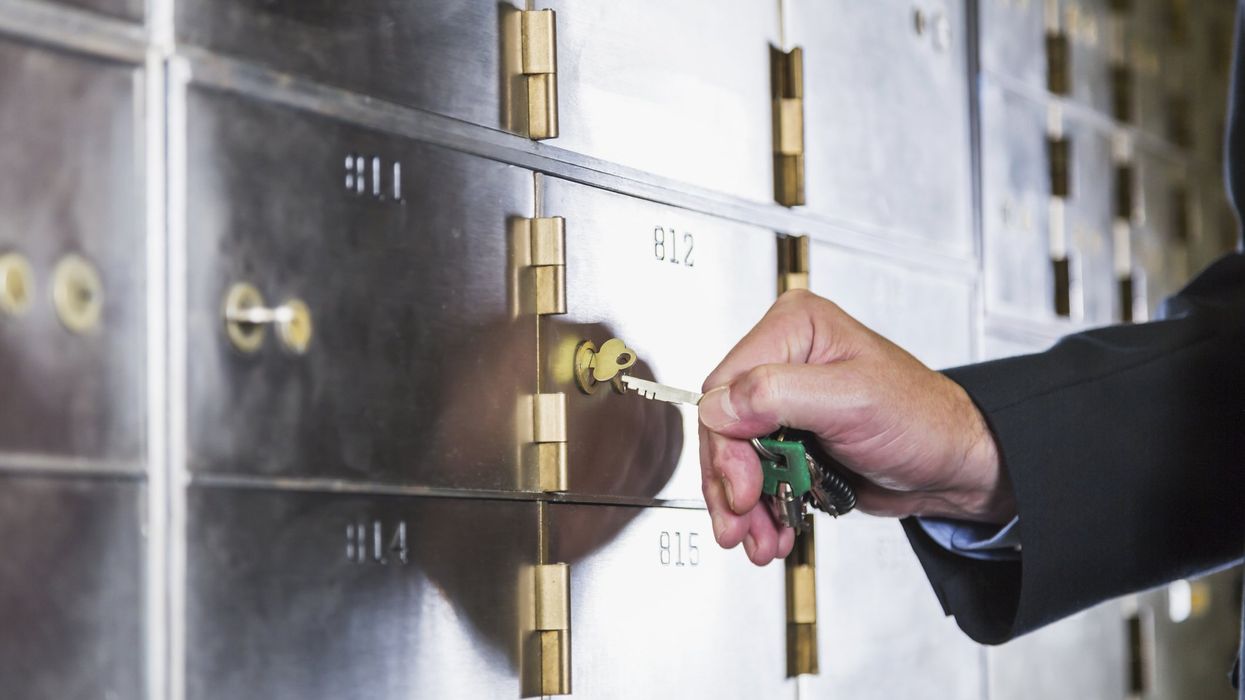
kali9/Getty

Editor's note: We're facing an unprecedented moment in American history. Our government and multinational tech monopolies are making it clear that we, the people, are the target of the monstrous surveillance state they've constructed. The deep state is attempting to jail people who share memes, Blaze Media journalists, and even the leading presidential candidate. It's time we take back control over our privacy and digital communications, and this guide will provide you with the tools to do that. This is an excerpt from a larger guide.
Like so much else in Big Tech, convenience comes at the price of security and privacy. When you store your documents on Google, Dropbox, or a note-taking app like Evernote, you can share large files and work with teams, and your files are reasonably secure and easy to access. But the reality is that your files and photos are stored on someone else’s server. This means the server owners have control and access. It is like having all your files in a cabinet in someone else’s living room. They can see it. And don’t think it won’t happen. Google doesn’t just store your files; it manages them, decides what is acceptable, and has locked out and blocked users from accessing their accounts.
Currently, I use a paid Dropbox account for sharing and collaboration and find it very valuable. Dropbox Paper allows you to collaborate in real time just like Google Docs. It is also just one service, not a bundle that keeps your data in various places. I like it better than Google and find it easier to share with those who don’t have a Gmail account. But Dropbox is still someone else’s server. I am looking for better options for privacy, including some applications built with blockchain protocols for storing files.
There are several private options that fill this need:
Proton is starting its own drive, which is out in beta. I have used it a bit, and it works well.
I have used Basecamp for many years for different projects and collaboration with teams. I like it, and so do my colleagues. It does not work as well as Dropbox for storing and sharing files, but Basecamp does have this feature, and it can work with teams.
Storj is a newer decentralized storage option built on the Ethereum blockchain.
No matter what you use, always pay for your storage.
Another option is to set up a personal server. This is more private, but it is also more complex and requires you to pay attention to your own security. I have not done this yet, but here are a couple of resources:
I think that personal servers and blockchain-based decentralized servers are the way we need to go. But at this point, it is more complex and requires attention to security and hacking. One of the benefits of Google, Dropbox, and other services is that they are world-class engineers and help secure your data from hackers. But the price is that they have access to and control of your data. You may not want to get a personal server, but at least get a service that respects your privacy. And because “the cloud” is someone else’s server, be careful with your most personal documents, encrypt them, and have offline backups. Any important documents, tax documents, passwords, or letters to family that you really want to be private, keep offline and don’t send digitally.
Finally, it is important to have multiple offline backup drives and keep them in different places. You can have backups in the cloud, but unless it is your own server, someone else is guarding your data. Even Google backs up to tape.
If you have a lot to back up, a RAID system can be helpful and provide extra safety. RAID stands for redundant array of independent disks. This means that your data is on multiple disks and if one fails, you still have your data on the other disk drives. For most people, basic backup disks will be sufficient. But for those who want extra security, RAID may be a good option.
Having digital music, books, and videos is super convenient. CDs and DVDs get scratched and lost, and having all your music instantly available on all your devices is great. Same with books. I don’t really like reading ebooks, so generally I buy paperback or hardcover. And the result is that I have thousands of books that clutter up every room in our house. Putting half of them on an e-reader would do a lot for my wife’s sanity. But convenience, again, has a potential price. Books in digital format can be edited, changed, or even removed. For example, when you buy a book on Kindle, which I sometimes do, the terms of use state that you don’t “own” the book. You are licensing the book. If you really value a book, movie, or music, then you may want to consider purchasing it in physical form. All things are trade-offs, but if you really want access to a book or movie and you want it in the form you bought it, buy physical media.
- YouTube youtu.be
Michael Matheson Miller